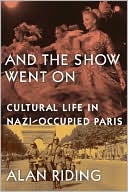Category Books
- Fiction Books & Literature
- Graphic Novels
- Horror
- Mystery & Crime
- Poetry
- Romance Books
- Science Fiction & Fantasy
- Thrillers
- Westerns
- Ages 0-2
- Ages 3-5
- Ages 6-8
- Ages 9-12
- Teens
- Children's Books
- African Americans
- Antiques & Collectibles
- Art, Architecture & Photography
- Bibles & Bible Studies
- Biography
- Business Books
- Christianity
- Computer Books & Technology Books
- Cookbooks, Food & Wine
- Crafts & Hobbies Books
- Education & Teaching
- Engineering
- Entertainment
- Foreign Languages
- Game Books
- Gay & Lesbian
- Health Books, Diet & Fitness Books
- History
- Home & Garden
- Humor Books
- Judaism & Judaica
- Law
- Medical Books
- New Age & Spirituality
- Nonfiction
- Parenting & Family
- Pets
- Philosophy
- Political Books & Current Events Books
- Psychology & Psychotherapy
- Reference
- Religion Books
- Science & Nature
- Self Improvement
- Sex & Relationships
- Social Sciences
- Sports & Adventure
- Study Guides & Test Prep
- Travel
- True Crime
- Weddings
- Women's Studies
And the Show Went On: Cultural Life in Nazi-Occupied Paris »

Authors: Alan Riding
ISBN-13: 9780307268976, ISBN-10: 0307268977
Format: Hardcover
Publisher: Knopf Doubleday Publishing Group
Date Published: October 2010
Edition: (Non-applicable)
Author Biography: Alan Riding
For twelve years, Alan Riding was the European cultural correspondent for The New York Times. He was previously bureau chief for the Times in Paris, Madrid, Rio de Janeiro and Mexico City. Riding is the author of Distant Neighbors. He continues to live in Paris with his wife, Marlise Simons, a writer for the Times.
Book Synopsis
On June 14, 1940, German tanks rolled into a silent and deserted Paris. Eight days later, a humbled France accepted defeat along with foreign occupation. The only consolation was that, while the swastika now flew over Paris, the City of Light was undamaged. Soon, a peculiar kind of normality returned as theaters, opera houses, movie theaters and nightclubs reopened for business. This suited both conquerors and vanquished: the Germans wanted Parisians to be distracted, while the French could show that, culturally at least, they had not been defeated. Over the next four years, the artistic life of Paris flourished with as much verve as in peacetime. Only a handful of writers and intellectuals asked if this was an appropriate response to the horrors of a world war.
Alan Riding introduces us to a panoply of writers, painters, composers, actors and dancers who kept working throughout the occupation. Maurice Chevalier and Édith Piaf sang before French and German audiences. Pablo Picasso, whose art was officially banned, continued to paint in his Left Bank apartment. More than two hundred new French films were made, including Marcel Carné’s classic, Les Enfants du paradis. Thousands of books were published by authors as different as the virulent anti-Semite Céline and the anti-Nazis Albert Camus and Jean-Paul Sartre. Meanwhile, as Jewish performers and creators were being forced to flee or, as was Irène Némirovsky, deported to death camps, a small number of artists and intellectuals joined the resistance.
Throughout this penetrating and unsettling account, Riding keeps alive the quandaries facing many of these artists. Were they “saving” French culture by working? Were they betraying France if they performed before German soldiers or made movies with Nazi approval? Was it the intellectual’s duty to take up arms against the occupier? Then, after Paris was liberated, what was deserving punishment for artists who had committed “intelligence with the enemy”?
By throwing light on this critical moment of twentieth-century European cultural history, And the Show Went On focuses anew on whether artists and writers have a special duty to show moral leadership in moments of national trauma.
The New York Times - Geoffrey Wheatcroft
Thirty years ago, while reporting on Latin America…Alan Riding began wondering how artists and writers responded to brutal dictatorships. He then went to live in Paris and realized that not so long before, the French intellectual and cultural elite had provided an answer, in often unlovely ways. And the Show Went On describes this history in gripping and painful detail…We'll always have Paris, but we may not feel quite the same about it after reading…[Riding's] enthralling and disturbing book…
Table of Contents
Subjects
 European History
European History  French History
French HistoryHistory
 European History
European History  German History
German HistoryHistory
 Military History
Military History  World War II
World War IIHistory
 Political History
Political History  General & Miscellaneous
General & MiscellaneousHistory
 World History
World History  General & Miscellaneous World History
General & Miscellaneous World HistoryNonfiction
 Social Sciences
Social Sciences  Regional Studies
Regional StudiesPolitical Books & Current Events Books
 All Politics
All Politics  General & Miscellaneous
General & MiscellaneousScience & Nature
 Social Sciences
Social Sciences  Regional Studies
Regional StudiesSocial Sciences
 Regional Studies
Regional Studies  European Studies
European StudiesNonfiction
 History
History  European History
European HistoryNonfiction
 History
History  Military History
Military HistoryNonfiction
 History
History  Political History
Political HistoryNonfiction
 History
History  World History
World HistoryNonfiction
 Politics & Current Affairs
Politics & Current Affairs  All Politics
All Politics
